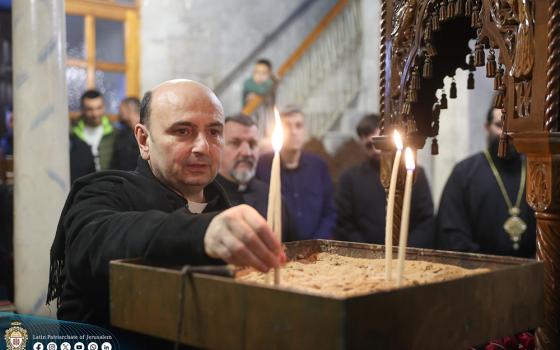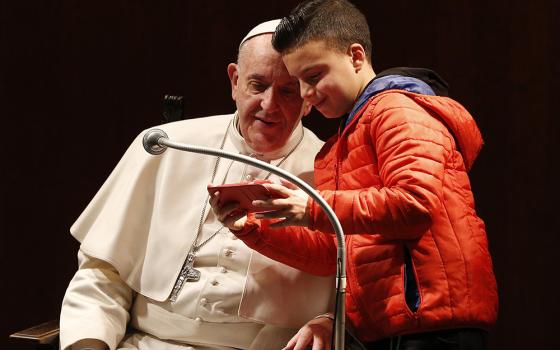WASHINGTON -- The chairmen of the U.S. bishops' international and domestic policy committees urged the 12-member Joint Select Committee on Deficit Reduction -- popularly known as the "supercommittee" -- to remember the poor and vulnerable as they come up with a plan to deal with the nation's financial deficit.
"In this effort, you will examine endless data, charts and alternative budgets," said Bishop Howard J. Hubbard of Albany, N.Y., chairman of the bishops' Committee on International Justice and Peace, and Bishop Stephen E. Blaire of Stockton, Calif., chairman of the Committee on Domestic Justice and Human Development, in their Aug. 31 letter.
"Behind all those numbers are people we serve every day in our parishes, schools, hospitals, shelters and soup kitchens. The poorest and most vulnerable do not have powerful lobbyists, but they have the most compelling needs and a special claim on our individual consciences and national choices, especially in these times of massive joblessness, increasing poverty and growing hunger," they said.
The supercommittee, made up of six members of the Senate and six of the House of Representatives, and equally divided between Democrats and Republicans, was created as part of the August deal to raise the national debt ceiling. It will first meet Sept. 16, and it must recommend by Thanksgiving cuts of $1.5 trillion over 10 years. If its recommendations are not adopted, $1.2 trillion in cuts over 10 years would be triggered -- half involving defense spending.
"A just framework for future budgets cannot rely on disproportionate cuts in essential services to poor and vulnerable persons. These programs need to be made more effective, efficient and responsive and we should work to strengthen and improve them on an ongoing basis," said Bishops Hubbard and Blaire.
"However, it would be wrong to balance future budgets by hurting those who already hurt the most by cutting programs such as foreign aid, affordable housing programs, child nutrition or health care," they said. "A just framework also requires shared sacrifice by all, including raising adequate revenues, eliminating unnecessary military and other spending, and addressing the long-term costs of health insurance and retirement programs fairly."
The two bishops offered moral criteria to the supercommittee when making budget decisions.
"Every budget decision should be assessed by whether it protects or threatens human life and dignity," they said.
"A central moral measure of any budget proposal is how it affects 'the least of these,'" a reference to Matthew 25, they added. "The needs of those who are hungry and homeless, without work or in poverty should come first."
Also, Bishops Blaire and Hubbard said, "government and other institutions have a shared responsibility to promote the common good of all, especially ordinary workers and families who struggle to live in dignity in difficult economic times."



